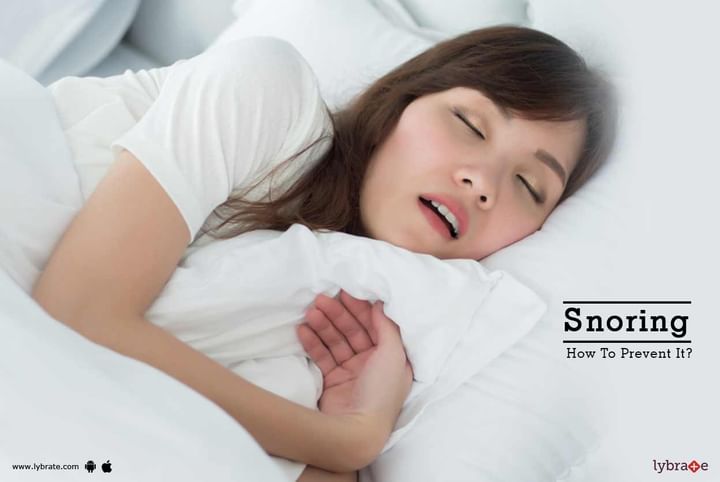Get the App
For Doctors
Login/Sign-up
Last Updated: Dec 11, 2019
BookMark
Report
Snoring - How To Prevent It?
About 45 percent of adults snore occasionally, and although most people tend to ignore it, snoring is a problem that must be dealt with consideration. There are many families where one spouse snores and keeps the other person from a good night’s sleep. It has been reported that snoring can create severe disputes in marriage and one who snores must take steps to control snoring.
Snoring is not simply a nuisance, but a major proportion of individuals who snore are affected with obstructive sleep apnea by which breathing is disrupted while a person is fast asleep. This condition increases the risk of heart diseases. Fortunately, there are ways to control a person's snoring.
- Weight loss: Having a large neck circumference and being overweight increases the risk of pushing the fat down at the throat resulting in snoring. With a suitable weight loss training, one can control the snoring to a considerable extent.
- Altering sleep positions: Sleeping on the sides help in forbidding the tongue from resting backwards and blocking the throat while sleeping. Some specially created pillows can help individuals from rolling back during sleep.
- Limit alcohol intake: Drinking alcohol contributes to further relaxation of muscles in the airways and collapse the path which makes snoring even worse. Limiting the consumption of alcohol and avoiding to drink it at least 4 to 5 hours before going to bed can reduce snoring to a significant extent.
- Stop smoking: Smoking invariably leads to nasal congestion as well as inflammation which in turn worsen snoring. If one is running out of reasons to avoid smoking, then this is one of the most convincing reasons to quit smoking and enjoy overall good health.
- Certain medications: There are some medicines, particularly sedatives and antihistamines are designed to have a relaxing effect and can, therefore, aggravate snoring. But it is advised to consult with the general physician before making any alterations in the medicine routine.
- Avoid opening the mouth: Those who are aware of snoring with the mouth open must avoid opening the mouth during sleep by using a specifically designed tape or adhesive for closing shut the mouth while sleeping.
- Using a specialised device: The mandibular advancement device is specifically crafted for those who suffer from tongue-based snoring. This equipment helps in moving the jaw forward as well as prevent the tongue from blocking the backside of the throat while sleeping.
- Avoid nasal collapse: Those who suffer from the nasal collapse must use some form of adhesive nasal dilator strip which has to be placed over the nose. This would aid in keeping the airways open as well as reduce snoring.
- Treat allergies: Inflammation, as well as nasal congestion triggered by allergies, is a common cause of snoring while sleeping. One must opt to do an allergy test to identify and reduce potential allergens in the area where the individual sleeps such as bedding type, pet hair, dust mites, wheat or dairy intolerance and lessen snoring.
Thus, snoring can be controlled before it becomes a problem.



+1.svg)
